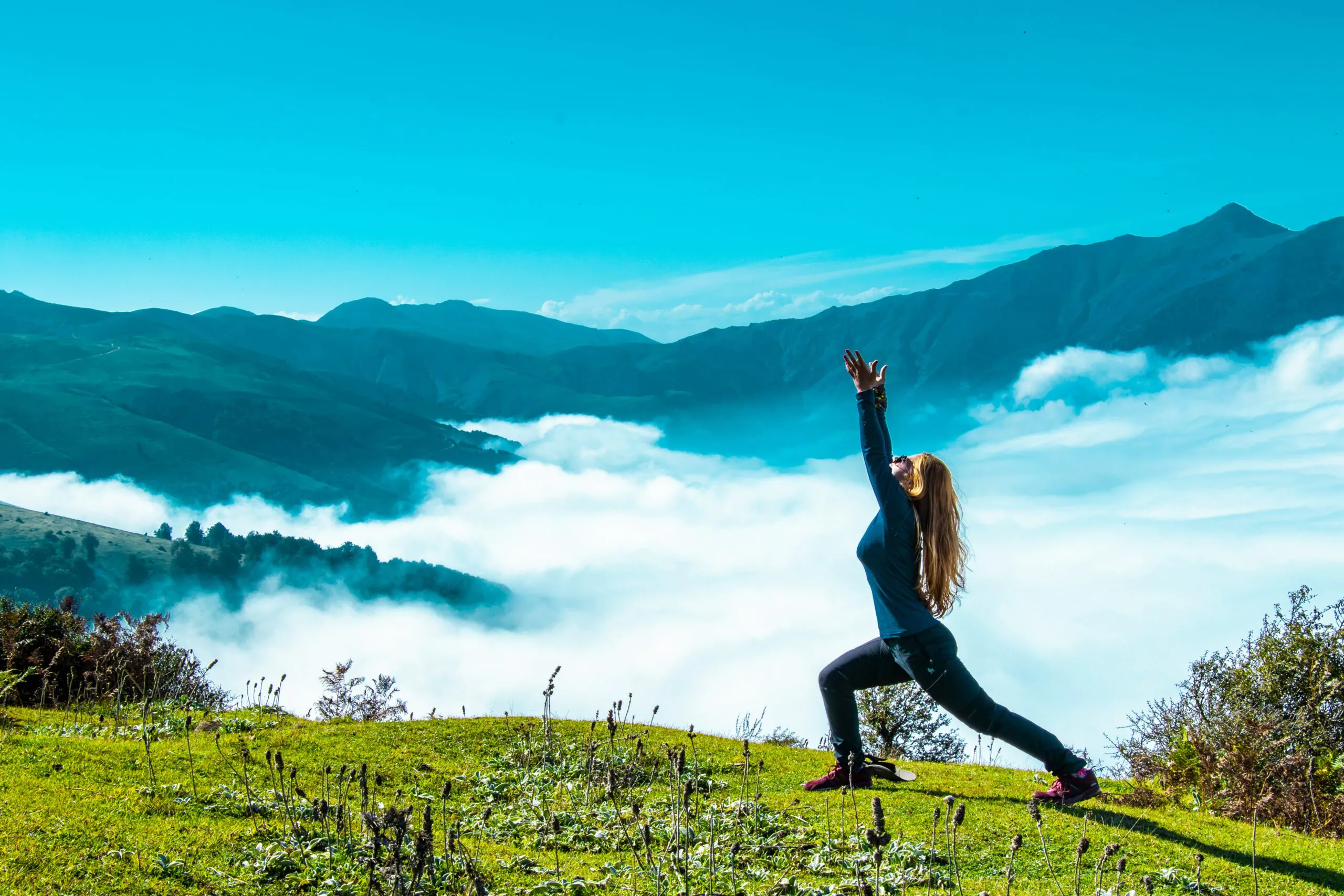Anxiety Treatment for Digital Nomads While Traveling
Traveling the world as a digital nomad offers freedom and adventure, but it also presents unique challenges, particularly when it comes to mental health. The constant movement, unfamiliar environments, and isolation from support networks can exacerbate anxiety, making it crucial to have effective strategies in place. This article will explore how to manage and seek anxiety treatment for digital nomads while traveling, providing practical tips and resources to help maintain mental well-being on the road.
Finding balance between the excitement of new experiences and the demands of work can be daunting. As a digital nomad, you might feel pressure to always be “on,” both in your professional and personal life, leading to burnout and increased anxiety. However, by recognizing the signs of anxiety early and proactively seeking treatment, you can ensure that your journey remains both enjoyable and sustainable.
To help you navigate this, we’ll delve into various methods for anxiety management, from self-care practices to professional resources. Whether you’re dealing with occasional stress or chronic anxiety, these strategies will equip you with the tools needed to thrive, no matter where your travels take you.
Understanding Anxiety as a Digital Nomad
Anxiety can manifest in many forms, from mild worry to intense fear and panic attacks. For digital nomads, the transient lifestyle can trigger or worsen anxiety due to the lack of routine, uncertainty, and potential loneliness. Recognizing the symptoms is the first step in managing anxiety effectively. These symptoms might include persistent nervousness, difficulty concentrating, sleep disturbances, or physical symptoms like headaches and muscle tension.
Being aware of these signs and understanding that anxiety is a normal response to the stressors of travel is essential. By acknowledging your feelings, you can start to develop a plan for anxiety treatment for digital nomads while traveling that suits your lifestyle and needs.
Self-Care Strategies for Managing Anxiety on the Road
Self-care is a fundamental component of managing anxiety, especially when you’re constantly on the move. Here are some key practices to incorporate into your routine:
1. Establish a Daily Routine
While the digital nomad lifestyle is inherently flexible, having a daily routine can provide much-needed stability. Set aside specific times for work, exercise, meals, and relaxation. This structure can help reduce the unpredictability that often fuels anxiety.
2. Practice Mindfulness and Meditation
Mindfulness and meditation are powerful tools for calming the mind and reducing anxiety. Incorporating practices like deep breathing exercises, guided meditations, or simple mindfulness techniques into your day can make a significant difference in how you handle stress. There are numerous apps available that offer guided sessions, which can be easily integrated into your travel routine.
3. Stay Connected with Loved Ones
Isolation is a common challenge for digital nomads, but staying connected with family and friends can provide emotional support. Regular video calls, messaging, or even sending postcards can help maintain these important relationships and offer comfort during stressful times.
Seeking Professional Help While Traveling
For some, self-care strategies might not be enough, and seeking professional help becomes necessary. Fortunately, there are various ways to access anxiety treatment for digital nomads while traveling:
1. Accessing Professional Help on the Go
While self-care practices are essential, professional help is sometimes necessary to manage anxiety effectively. Teletherapy platforms like BetterHelp and Talkspace allow you to connect with licensed therapists remotely, making it easier to continue therapy sessions while traveling.
These platforms are particularly beneficial for digital nomads, offering flexibility and accessibility that traditional therapy might lack. Regular sessions can help you stay on track with your anxiety treatment plan, providing the support you need to navigate challenges as they arise.
2. Local Mental Health Resources
If you’re staying in one place for an extended period, researching local mental health resources can be beneficial. Many countries have English-speaking therapists or counselors who can provide support. Additionally, some countries offer mental health services through community centers or non-profit organizations, which might be more affordable than private care.
3. Medication Management
If your anxiety treatment plan includes medication, it’s crucial to ensure that you have access to your prescriptions while traveling. Before you leave, check the CDC guidelines on traveling with medication to avoid any legal issues or complications at customs.
It’s also wise to carry a doctor’s note explaining your prescription, as well as keeping medications in their original packaging. This preparation can prevent potential disruptions to your treatment plan and help maintain your mental health on the road.

Practical Tips for Managing Anxiety on The Go
In addition to professional help and self-care, there are several practical strategies that can help manage anxiety while on the road:
1. Prioritize Sleep
Lack of sleep can exacerbate anxiety, so it’s essential to prioritize rest. Establish a consistent sleep schedule, even if your time zone changes frequently. Consider using sleep aids like eye masks, earplugs, or white noise apps to create a restful environment.
2. Limit Caffeine and Alcohol
While it might be tempting to indulge in local coffee or enjoy a drink after a long day, both caffeine and alcohol can increase anxiety symptoms. Moderation is key, and it’s important to listen to your body and know your limits.
3. Stay Physically Active
Exercise is a proven way to reduce anxiety, so make time for physical activity during your travels. Whether it’s a morning jog, a yoga session, or exploring your destination on foot, staying active can help regulate your mood and energy levels.
4. Plan for Downtime
It’s easy to feel overwhelmed when you’re constantly moving from one place to another. Scheduling downtime into your itinerary allows you to recharge and avoid burnout. Use this time to relax, reflect, or engage in activities that bring you joy.
Incorporating Mindfulness and Meditation into Your Routine
Mindfulness and meditation are powerful tools in managing anxiety, especially when you’re on the move. Regular practice can help ground you in the present moment, reducing the impact of stressors related to travel. Apps like Headspace and Calm offer guided meditations that you can use anytime, anywhere, making them ideal for digital nomads.
Additionally, yoga is another excellent way to manage stress and anxiety. Free resources like the Yoga with Adriene YouTube channel can help you maintain a regular practice, regardless of where you are in the world.
Building a Support Network During Travel
Creating a support network is crucial for managing anxiety as a digital nomad. While it might seem challenging to build connections while constantly on the move, there are several ways to foster relationships:
1. Join Online Communities
There are numerous online communities for digital nomads where you can connect with others who understand the unique challenges of this lifestyle. Platforms like Reddit, Facebook groups, and Nomad List offer spaces where you can share experiences, ask for advice, and find support.
2. Attend Meetups and Events
Attending local meetups and events is a great way to meet like-minded individuals and build a sense of community. Whether it’s a coworking space gathering, a language exchange, or a local festival, engaging with others can provide a sense of belonging and reduce feelings of isolation.
3. Stay in Coliving Spaces
Coliving spaces are designed for digital nomads and offer a built-in community of travelers who share similar lifestyles. Staying in these spaces, like Selina or Outsite, can provide companionship and support, helping to alleviate anxiety that stems from loneliness. These environments foster a community atmosphere where you can connect with other travelers who may share similar challenges.
Embracing Flexibility and Adaptability
One of the greatest advantages of being a digital nomad is the ability to adapt to new situations. While anxiety can make change feel daunting, embracing flexibility can help you navigate challenges with greater ease:
1. Reframe Challenges as Opportunities
Instead of viewing challenges as obstacles, try reframing them as opportunities for growth. This shift in perspective can reduce anxiety by encouraging you to approach problems with curiosity rather than fear.
2. Practice Self-Compassion
Traveling can be unpredictable, and not everything will go according to plan. Practicing self-compassion means being kind to yourself when things don’t go as expected. It’s okay to make mistakes or feel overwhelmed—what matters is how you respond and take care of yourself.
Finding Joy in the Journey
Anxiety treatment for digital nomads while traveling doesn’t have to be a daunting task. By implementing these strategies—building a support system, practicing mindfulness, accessing professional help, managing medications, and staying physically active—you can effectively manage your anxiety and continue to thrive as you explore the world. Remember, taking care of your mental health is as important as any other aspect of your journey.













